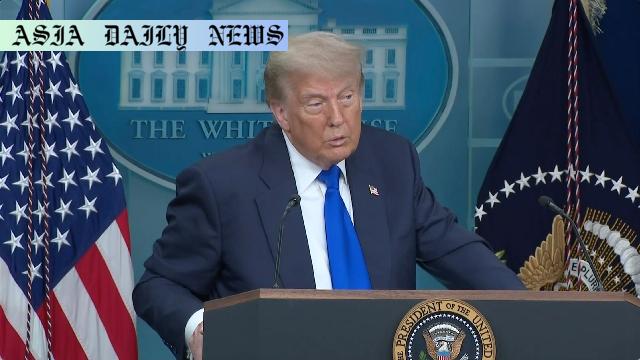Iran Enrichment: Tensions surge as US considers military action
US President Trump suggests bombing Iran again amid uranium enrichment concerns.
Military tensions heighten following US-Iran attacks on key installations.
Trump indicated potential diplomatic talks, but timing remains unclear.
Observers interpret US’ strategy to pressure Iran on nuclear development.

US-Iran Tensions Rise Over Uranium Enrichment
The escalating tensions between the US and Iran have reached a critical juncture, as President Donald Trump signaled the possibility of military action if Iran continues to enrich uranium to high levels. In a press interaction on Friday, President Trump emphatically stated, “Without question, absolutely,” when asked about considering another strike on Iran should intelligence confirm advancements in uranium enrichment. This remark highlights the increasing strain in the already tumultuous bilateral relationship.
Recently, US forces targeted three Iranian nuclear facilities in a decisive move, citing concerns over nuclear proliferation in the region. In retaliation, Tehran launched an attack on a US military base in Qatar, marking a dangerous escalation in military confrontations. The tense situation underscores the broader challenges facing the international community as efforts to mitigate nuclear threats and maintain regional stability intensify.
Diplomacy in Question Amid Talk of Further Strikes
While military options remain on the table, the possibility of diplomatic resolution has garnered attention. President Trump mentioned, “Iran wants to meet,” a comment that points to the potential for dialogue, albeit with uncertainties surrounding the timing and outcome. The White House has confirmed that lines of communication with Tehran remain open, but experts suggest the US’ military posturing might serve as a pressure tactic to push Iran toward negotiations.
Observers argue that the dual-strategy approach of combining aggressive rhetoric with the possibility of dialogue reflects a calculated move by the US to curb Iran’s nuclear ambitions. However, this approach risks further alienating Iran, compounding the already delicate nature of the Middle Eastern geopolitical landscape.
Global Implications of the US-Iran Standoff
The ongoing US-Iran tensions have rippling global implications. The stakes are particularly high, given the potential of a nuclear arms race in the region. If unresolved, the situation could destabilize international markets, strain alliances, and spark broader conflicts that extend beyond the borders of the Middle East. Allies of both nations are closely monitoring developments, as any escalation could draw in actors with vested regional interests, further complicating the crisis.
For now, the international community faces a critical choice: ramping up pressure on Tehran to abandon its nuclear ambitions or navigating a highly precarious path of diplomacy with a volatile adversary. The outcome of this standoff will undoubtedly shape not only US-Iran relations but also the broader quest for global peace and stability.
Commentary
Complexities of US-Iran Dynamics
The unfolding developments between the United States and Iran paint a worrisome picture of global diplomacy. The renewed focus on Iran’s uranium enrichment activities has triggered not only political confrontations but also raised questions about the broader implications for international security. At its core, the complexity of US-Iran relations stems from decades of mistrust and conflicting geopolitical interests that often leave little room for compromise.
Assessing the US Strategy
The US’ approach of combining military action with the offer for talks exemplifies a delicate balancing act. On one hand, the show of force signals a tough stance against nuclear proliferation, potentially deterring further Iranian advancements. On the other hand, such aggression risks exacerbating tensions and alienating not just Iran but also other stakeholders in the region who advocate for peaceful resolution. Striking the right balance in this volatile context is no easy task, and each decision carries significant consequences.
The Road Ahead for Diplomacy
As the situation evolves, the necessity for diplomatic engagement becomes increasingly evident. Military actions, while effective in making short-term political statements, are unlikely to yield lasting solutions. Instead, fostering dialogue based on mutual respect, albeit challenging, remains the only viable option for defusing tensions and securing a sustainable resolution.
Moving forward, the international community must step up its efforts to mediate and facilitate constructive negotiations. A proactive, coordinated response involving key global powers may break the current impasse and pave the way for a more stable Middle East. Ultimately, the enduring lesson is clear: the pursuit of peace, though arduous and fraught with challenges, must remain the ultimate priority for nations around the world.


